Beyond 2025: Visionary Paths in the Chesapeake Bay Restoration by the Next Generation
Moderators
Breck Sullivan
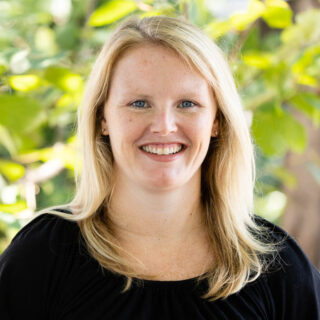
Breck Sullivan is employed by the U.S. Geological Survey and works at the Chesapeake Bay Program (CBP) as the Scientific, Technical Assessment and Reporting (STAR) Coordinator and Ecosystem Analyst. She oversees strategic direction for meeting the science needs within STAR and the CBP Goal Implementation Teams. She also supports analysis activities to advance understand of factors affecting trends in estuarine water quality and living resources. She holds a bachelor’s degree in Environmental Studies from Salisbury University. She received her master’s degree from State University of New York College of Environmental Science and Forestry (SUNY ESF) in Environmental Monitoring and Modeling.
Shuyu Chang
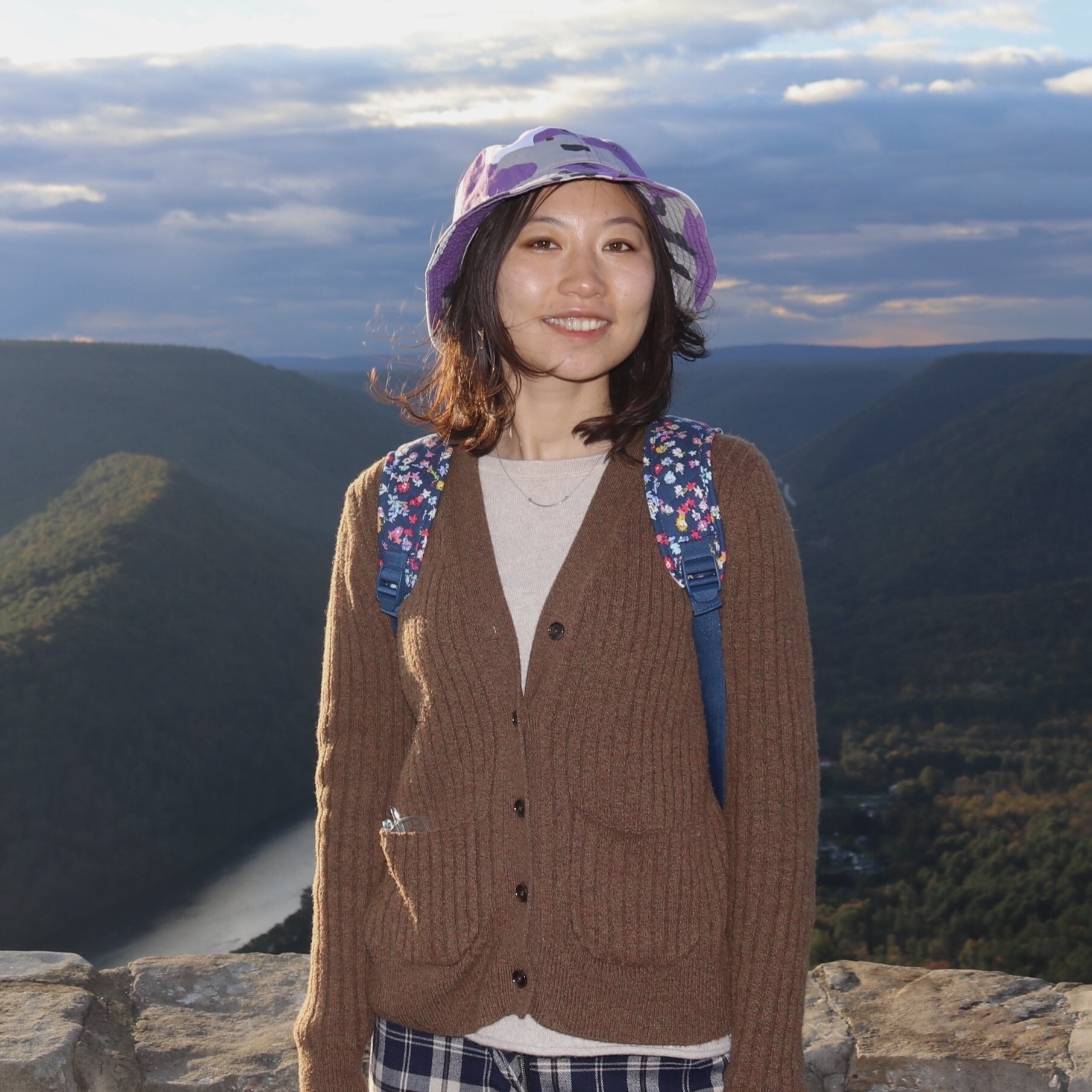
Shuyu Chang is a PhD candidate in Geography at Penn State University. Trained as a hydrologist, data scientist, and researcher, she strives to develop novel models and databases to better understand the interactions and feedbacks between hydrology and biogeochemistry in human-impacted watersheds. Her work supports decision-making within the realm of water policy and landscape management, with a specific focus on the Chesapeake Watershed. Shuyu is currently a NASA FINESST graduate research fellow and has been nominated as the first student representative on the Chesapeake Community Modeling Program’s Steering Committee (CCMP). She received her B.S. in Hydraulic Engineering from China Agricultural University and completed her M.S. in Water Resources Engineering at Johns Hopkins University.
Panelists
Dr. Xun (Nicole) Cai

Dr. Xun (Nicole) Cai is an ORISE postdoctoral fellow at EPA Region 3, Chesapeake Bay Program Office (CBPO). She received a Ph.D. degree in 2022 from the Virginia Institute of Marine Science, William & Mary, where she earned her Master’s degree in 2018. Prior to her studies in the US, she earned a bachelor’s degree in oceanography from Nanjing University in China in 2015. Nicole is an interdisciplinary scientist and ecosystem modeler specializing in the land-sea interface, with a keen interest in investigating the interactions between the diverse components of coastal ecosystems. Her research encompasses biogeochemistry, physical-biological interactions, tidal wetlands, land-sea interactions, and benthic-pelagic coupling. She employs numerical modeling, data analysis, and machine learning as primary research methodologies to collaborate extensively with ecologists, biologists, chemists, hydrologists, and physical oceanographers. One of her primary research objectives is to attain a comprehensive understanding and predictive capability regarding how coastal and ocean systems respond to critical environmental challenges such as sea-level rise and global warming. Instrumental to the research, model development is another focus of Nicole’s work. Nicole has been developing biogeochemical models and their related sub-models (e.g., tidal marsh, submerged aquatic vegetation (SAV), benthic algae, and benthic feeder) under the open-sourced state-of-the-art 3D SCHISM platform. Many of these models have been applied to studies of several systems around the world. At CBPO Nicole is developing initial fine-scale tributary models of the tidal waters of the James and York Rivers and the next-generation Chesapeake Bay Model.
Nicholas Coleman
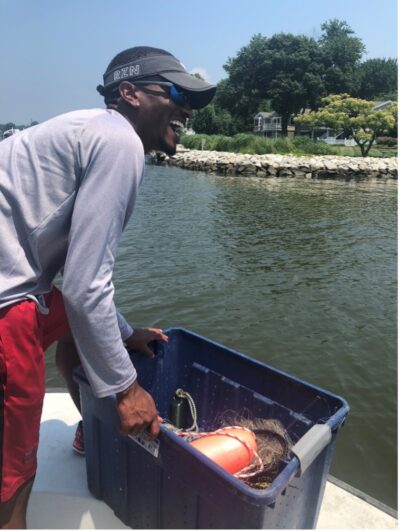
Nicholas Coleman is currently a Biologist in the Habitat Ecology Branch of the Population and Ecosystems Monitoring Division at the National Oceanic and Atmospheric Administration (NOAA) Southeast Fisheries Science Center (SEFSC) in Miami, Florida. His research interests include population dynamics, acoustic telemetry/habitat use of marine and estuarine fish, ecosystem interactions within fish communities, and the influence that climate change has on all of these factors.
Nicholas is originally from Upper Marlboro, Maryland. As a proud son of Maryland and the Chesapeake Bay area, Nicholas has had the privilege of being involved in some of the great research that this area conducts at various periods in his career. Notably, Nicholas was a part of the first Chesapeake Research Consortium (CRC) C-Stream Cohort which supported research experiences at the Smithsonian Environmental Science Center (SERC) and the Virginia Institution of Marine Science (VIMS). He obtained his Bachelor’s of Science in Marine Science from Coastal Carolina University and then returned home to complete his Master’s of Science at the University of Maryland Center for Environmental Science (UMCES), Chesapeake Biological Laboratory (CBL). As a NOAA Living Marine Resources Cooperative Science Center (LMRCSC) graduate fellow at CBL, Nicholas used acoustic telemetry and acoustic imagery to estimate the abundance of Atlantic sturgeon in the Marshyhope Creek-Nanticoke River system on the eastern shore of Maryland.
Prior to his appointment to the SEFSC, Nicholas was an Environmental Policy Analyst where he worked to identify opportunities to include climate science in national fisheries management at NOAA Headquarters in Silver Spring, Maryland. He also worked as a Physical Science Technician at the NOAA Chesapeake Bay Office where he supported the development and monitoring of an expanding hypoxia program. Throughout all of his experiences, Nicholas has been involved in Diversity, Equity, and Inclusion initiatives at various levels. He especially realizes the importance of staying connected to the communities and organizations that facilitated his development as a scientist.
Kelsi Furman
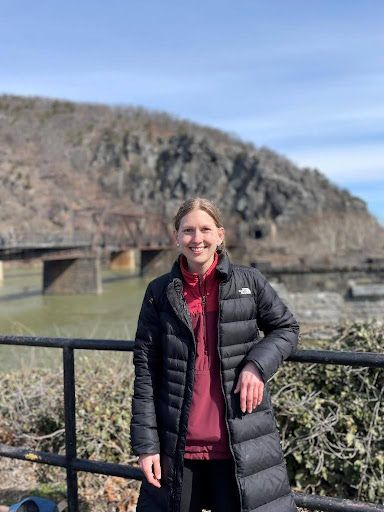
Kelsi Furman is a Postdoctoral Researcher at the Smithsonian Environmental Research Center in Edgewater, Maryland. Her research and expertise spans marine and coastal social-ecological systems, environmental sociology, social equity, and marine resource management. Kelsi is currently working with Dr. Emmett Duffy to examine how resource users, managers, and technical experts interact with coastal and marine biodiversity in support of practical and equitable management. To do this, Kelsi and her team are utilizing participatory modeling techniques during stakeholder interviews and workshops. Ultimately, they aim to understand tradeoffs of various marine resource management approaches for biodiversity conservation and access for coastal communities.
Kelsi received both her BS and PhD in Marine and Environmental Sciences from Northeastern University. During her PhD, Kelsi was a National Science Foundation Graduate Research Fellow and NSF Graduate Research Intern at NOAA Fisheries Southeast Fisheries Science Center. Prior to her current position, Kelsi was a Postdoctoral Researcher at NOAA Fisheries Alaska Fisheries Science Center in Juneau, Alaska. Her previous research has focused on the impacts of shoreline alteration to shore-based fishing access, social equity in recreational fisheries management, and the adaptive capacity of subsistence fishing communities to climate stressors.
Shane Mizelle
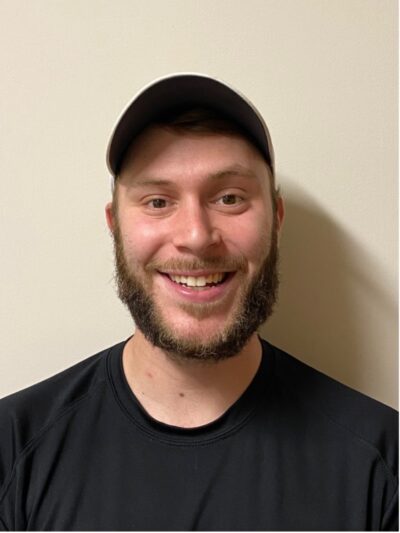
Shane Mizelle is an early-career Hydrologic Technician for the United States Geological Survey (USGS) MD-DE-DC Water Science Center, a part of the Water Resources Mission Area. A Baltimore native, he works out of the Baltimore office to serve the public world class science and data through a culture of excellence. He has spent the last 5 years working for the USGS after graduating with a B.S in Biology from Towson University. As a hydrologic technician, he collects and reviews water quality data for a variety of sampling projects and maintains the operation of sites where data is continuously collected. Currently he’s working on research projects focused on sediment and contaminant loads in river tributaries, establishing standard sampling procedures for emerging environmental contaminants such as microplastics, and using hyperspectral imaging to predict the presence of HABs.
Jessie Turner
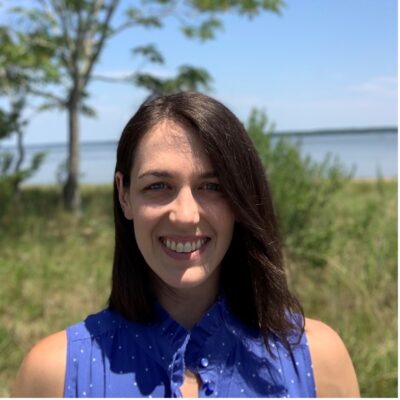
Jessie Turner is a Postdoctoral Research Associate at the University of Connecticut. She studies water quality, water clarity, and long-term change in coastal systems over time. Her research combines in situ observations, coupled hydrodynamic-biogeochemical models, and satellite remote sensing. Jessie has worked in estuaries, coastal systems, and open ocean environments from the Chesapeake Bay to polar oceans in Alaska and Antarctica. She completed her PhD research at the Virginia Institute of Marine Science. In the Chesapeake Bay, she has studied the environmental impacts of oyster aquaculture and shoreline hardening, as well as long-term changes in water clarity. Jessie advocates for intentionally using the most relevant measurements for each specific research or management question, and she is interested in the sometimes-surprising unintended consequences of human impacts on natural systems. Part of her personal mission is to train the next generation of scientists to access and analyze satellite data for aquatic science research and applications.
Wuillam Urvina
 Wuillam Urvina, a Maryland native of Salvadoran descent and graduate from the University of Maryland with degrees in environmental science and Spanish, began his journey with the Chesapeake Research Consortium in 2019 as a C-StREAM Intern for the Chesapeake Bay Program’s Water Quality Goal Implementation Team. With a passion for environmental stewardship and DEIJ, he quickly expanded his roles, interning with the Diversity Workgroup in 2020 before transitioning to his current position as an Environmental Management Staffer for the CBP’s Stewardship Goal Implementation Team. Wuillam’s mission is to merge his love for nature and languages to engage underrepresented communities in environmental initiatives, fostering appreciation for the environment. Outside of work, he indulges in reading, gaming, and language learning, hoping to embody a new wave of environmental advocates poised to make a difference in the Chesapeake Bay region and one day abroad.
Wuillam Urvina, a Maryland native of Salvadoran descent and graduate from the University of Maryland with degrees in environmental science and Spanish, began his journey with the Chesapeake Research Consortium in 2019 as a C-StREAM Intern for the Chesapeake Bay Program’s Water Quality Goal Implementation Team. With a passion for environmental stewardship and DEIJ, he quickly expanded his roles, interning with the Diversity Workgroup in 2020 before transitioning to his current position as an Environmental Management Staffer for the CBP’s Stewardship Goal Implementation Team. Wuillam’s mission is to merge his love for nature and languages to engage underrepresented communities in environmental initiatives, fostering appreciation for the environment. Outside of work, he indulges in reading, gaming, and language learning, hoping to embody a new wave of environmental advocates poised to make a difference in the Chesapeake Bay region and one day abroad.
Advances in Coupled Natural and Human Systems Research, Understanding and Applications
Moderator
Gary Shenk
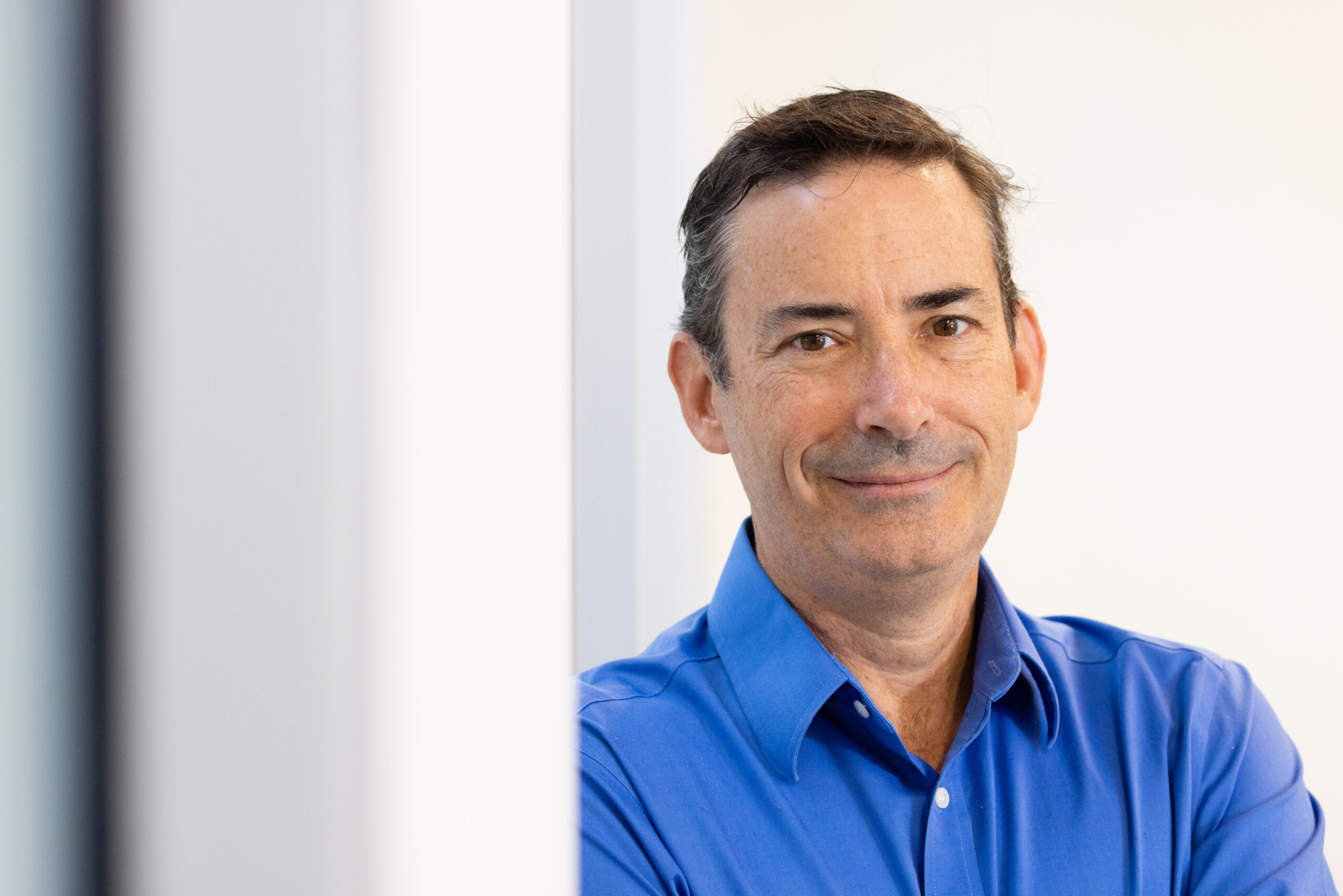 Gary Shenk is a Hydrologist with the USGS Virginia / West Virginia Water Science Center, stationed at the EPA’s Chesapeake Bay Program Office in Annapolis Maryland. He leads a multi-disciplinary team responsible for the development and operations for the CBP Partnership’s watershed modeling effort. The team includes staff at the Chesapeake Bay Program Office in collaboration with federal, state, academic, and other non-governmental organizations. His work in Chesapeake modeling and monitoring informs technical aspects of the Chesapeake Bay TMDL and accountability framework.
Gary Shenk is a Hydrologist with the USGS Virginia / West Virginia Water Science Center, stationed at the EPA’s Chesapeake Bay Program Office in Annapolis Maryland. He leads a multi-disciplinary team responsible for the development and operations for the CBP Partnership’s watershed modeling effort. The team includes staff at the Chesapeake Bay Program Office in collaboration with federal, state, academic, and other non-governmental organizations. His work in Chesapeake modeling and monitoring informs technical aspects of the Chesapeake Bay TMDL and accountability framework.
Panelists
Patrick Bitterman
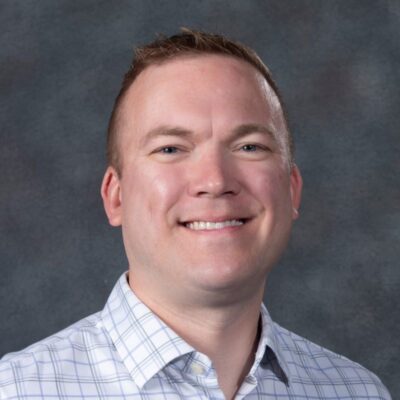
Patrick Bitterman is an Assistant Professor of Geography at the University of Nebraska-Lincoln. He also serves as the Assistant Director for Geography in the School of Global Integrative Studies and as a faculty fellow with the Daugherty Water for Food Global Institute at UNL. His research group at UNL focuses on understanding decision-making across multiple scales, with an emphasis on adaptive water governance in region-scale social ecological systems. He has expertise in the design of coupled and agent-based models, governance network analysis, and geospatial analysis & simulation. His work has led to on-the-ground policy outcomes, including state-level legislation in Vermont. Patrick’s current projects include two NSF-funded projects focused on modeling the water governance system in the Chesapeake Bay Watershed, among others.
Ben Geske
 Ben Geske, P.E., is a seasoned Senior Engineer specializing in Water Resources for the Delta Science Program, a division within the California State Agency known as the Delta Stewardship Council. With over 13 years of dedicated service to the state of California, Ben’s background lies in the development and testing of fish guidance systems in the Sacramento San Joaquin Delta. His collaborative approach has fostered partnerships with ecosystem modelers, regulatory agencies, academia, and various other stakeholders, leveraging diverse skill sets for holistic solutions. Currently, Ben leads an initiative aimed at developing an Integrated Modeling Framework and Collaboratory, dedicated to enhancing coordination, collaboration, and optimizing existing and future resources in water management. His commitment to innovation and interdisciplinary cooperation drives impactful change in water resource management within the region.
Ben Geske, P.E., is a seasoned Senior Engineer specializing in Water Resources for the Delta Science Program, a division within the California State Agency known as the Delta Stewardship Council. With over 13 years of dedicated service to the state of California, Ben’s background lies in the development and testing of fish guidance systems in the Sacramento San Joaquin Delta. His collaborative approach has fostered partnerships with ecosystem modelers, regulatory agencies, academia, and various other stakeholders, leveraging diverse skill sets for holistic solutions. Currently, Ben leads an initiative aimed at developing an Integrated Modeling Framework and Collaboratory, dedicated to enhancing coordination, collaboration, and optimizing existing and future resources in water management. His commitment to innovation and interdisciplinary cooperation drives impactful change in water resource management within the region.
Mindy Roberts
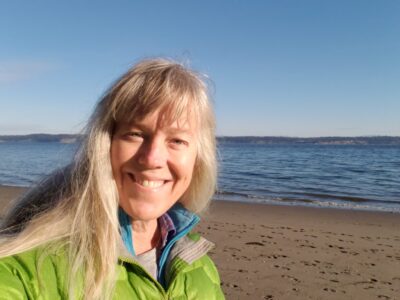
Mindy Roberts leads the Puget Sound Program at Washington Conservation Action, formerly Washington Environmental Council and Washington Conservation Voters. She advocates for clean water, healthy habitat, and renewed leadership to protect and recover Puget Sound and the Salish Sea. Previously, she developed computer models of how water and pollution move around rivers, lakes, and Puget Sound. Mindy is a registered professional engineer with over 30 years’ experience cleaning up pollution and restoring habitat all over the world. She holds environmental engineering degrees from UC Berkeley (BS), MIT/Woods Hole Oceanographic Institution (MS), and the University of Washington (Ph.D.). She is driven by a passion for environmental justice and ensuring that future generations experience salmon, orcas, and healthy communities. Mindy spends her free time climbing mountains, exploring the Salish Sea, and more recently crabbing from a stand-up paddleboard.
Lisa Wainger
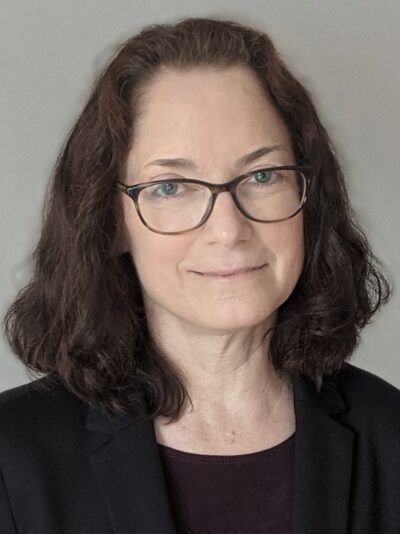
Dr. Lisa Wainger is a research professor of environmental economics at the University of Maryland Center for Environmental Science. She has over 25 years of experience in evaluating the costs, benefits and risks of environmental restoration and protection and working with governments to apply that information to decision making. In much of her research, she uses integrated modeling to combine ecosystem and social behaviors to project effectiveness of policy alternatives, often using ecosystem service benefits as performance metrics. She specializes in water quality, invasive species, and wetland restoration. She serves on numerous governmental and NGO science advisory boards and is currently chair of the California Delta Independent Science Board, which guides California Bay Delta restoration and policy.
D.G. Webster
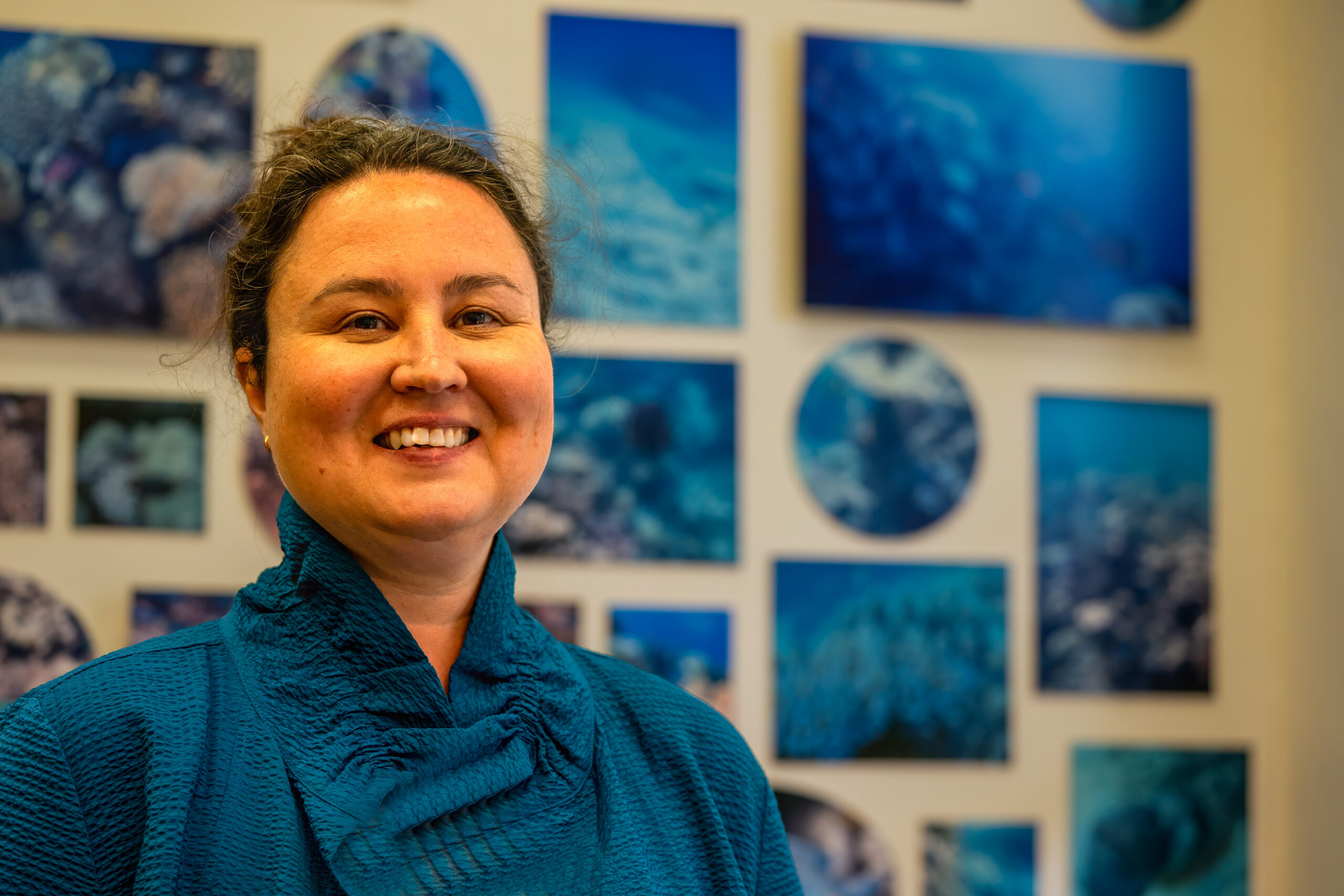
D.G. Webster, an associate professor in the Department of Environmental Studies at Dartmouth. She researches the dynamic evolution of environmental policy, with a particular focus on how learning and other social processes either improve or impair effective environmental governance. She is author of two books, multiple peer reviewed articles, and a number of successful interdisciplinary research proposals, including an NSF-funded project, Modeling the dynamics of human and estuarine systems with regulatory feedbacks (CNH2-L # 2009248). In 2024, she will serve as a Distinguished Fulbright Scholar for Oceans Governance at the University of Sao Paulo, where she will lead development of an Institutional Diagnostics Toolkit for the Blue Economy.
